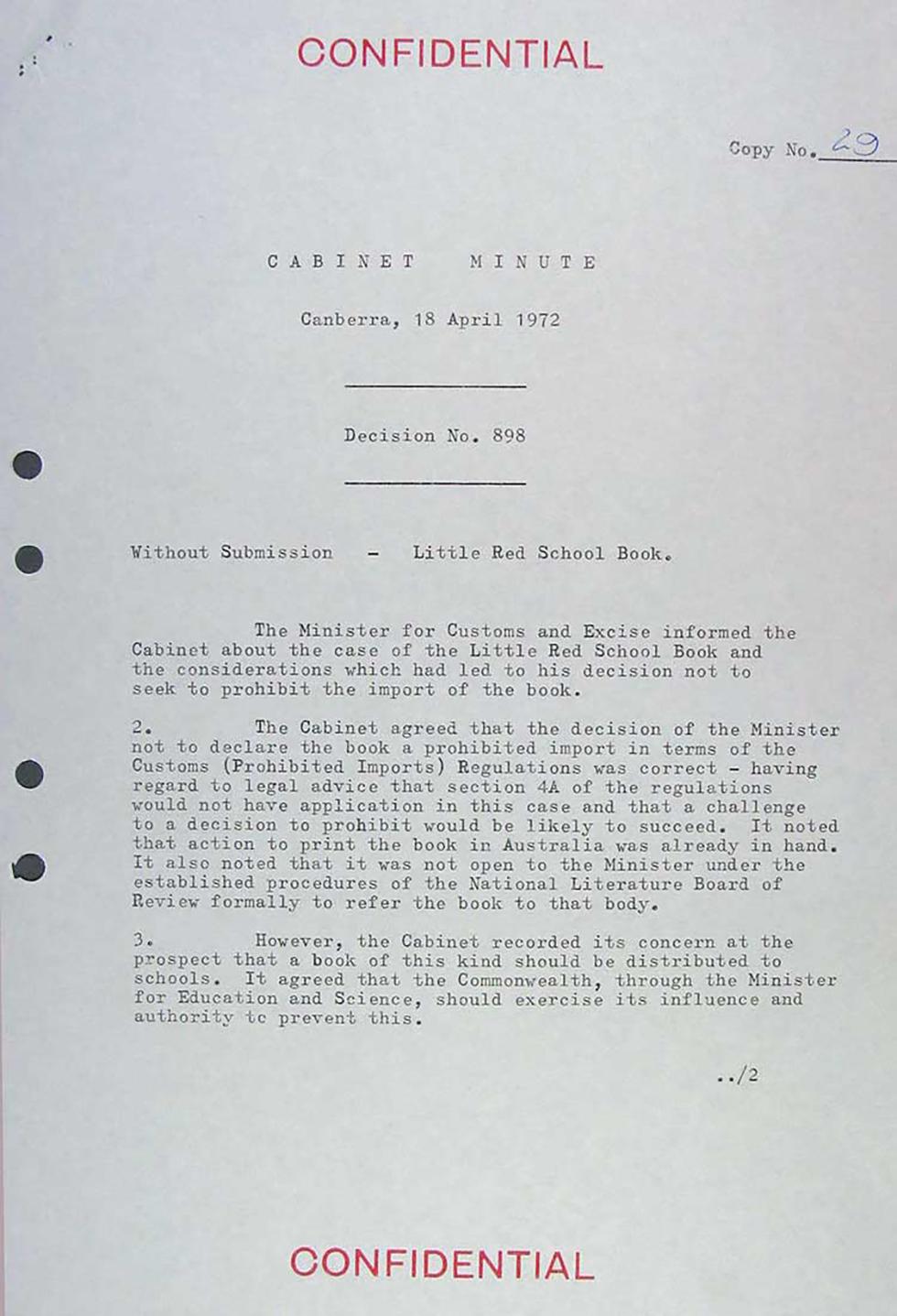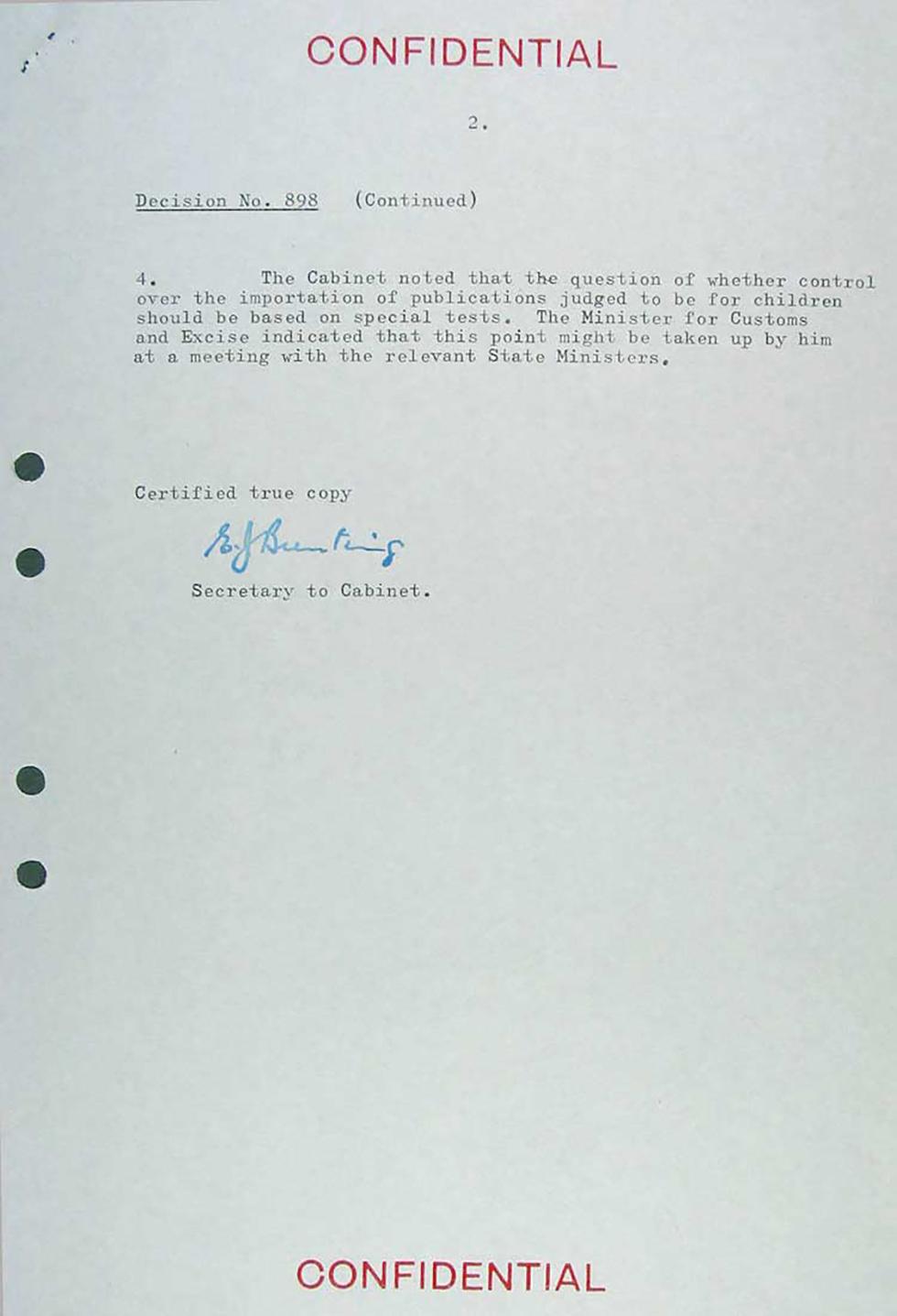

Aboriginal and Torres Strait Islander people should be aware that the National Archives' website and collection contain the names, images and voices of people who have died.
Some records include terms and views that are not appropriate today. They reflect the period in which they were created and are not the views of the National Archives.



[Page 1.]
[Header and footer, in large red letters:] CONFIDENTIAL
Copy No. 29
[Heading:] CABINET MINUTE
Canberra, 18 April 1972
Decision No. 898
[Heading:] Without Submission – Little Red School Book.
The Minister for Customs and Excise informed the Cabinet about the case of the Little Red School Book and the considerations which had led to his decision not to seek to prohibit the import of the book.
2. The Cabinet agreed that the decision of the Minister not to declare the book a prohibited import in terms of the Customs (Prohibited Imports) Regulations was correct – having regard to legal advice that section 4A of the regulations would not have application in this case and that a challenge to a decision to prohibit would be likely to succeed. It noted that action to print the book in Australia was already in hand. It also noted that it was not open to the Minister under the established procedures of the National Literature Board of Review formally to refer the book to that body.
3. However, the Cabinet recorded its concern at the prospect that a book of this kind should be distributed to schools. It agreed that the Commonwealth, through the Minister for Education and Science, should exercise its influence and authority to prevent this.
../2
[Page] 2.
[Header and footer, in large red letters:] CONFIDENTIAL
[Underlined heading] Decision No. 898 (Continued)
4. The Cabinet noted that the question of whether control over the importation of publications judged to be for children should be based on special tests. The Minister for Customs and Excise indicated that this point might be taken up by him at a meeting with the relevant State Ministers.
Certified true copy
[Handwritten signature:] E.J. Bunting
Secretary to Cabinet.
Stamped 'Confidential', this Cabinet minute records the McMahon government's decision not to prohibit the import of The Little Red School Book in 1972. It shows that Cabinet agrees, for legal reasons, with the minister's decision to allow importation of the book, but expresses its concern that the book not be distributed to schools and decides that efforts will be made to prevent this. The Cabinet minute is marked 'Copy No. 29' and 'Decision No. 898'. It is certified to be a true copy and signed by EJ Bunting, Secretary to Cabinet.
Learning resource text © Education Services Australia Limited and the National Archives of Australia 2010.
Learn how to interpret primary sources, use our collection and more.
